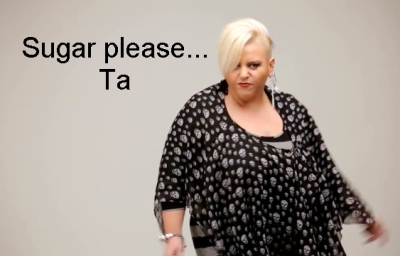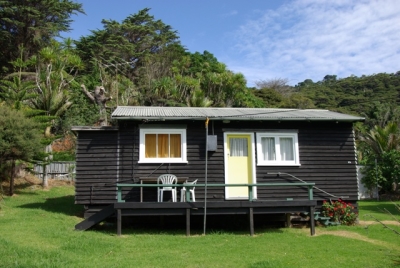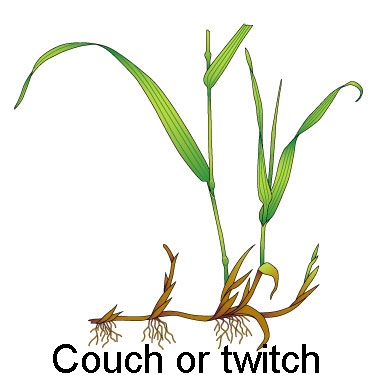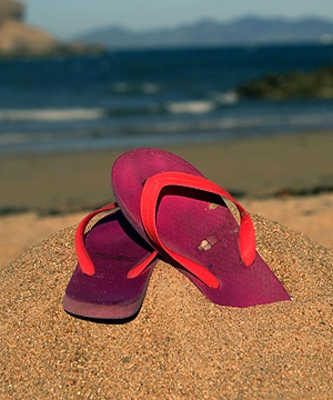1. Quite
It took me thirty years to realize this, but when New Zealanders say “quite” we don’t quite mean the same as Americans. I realized this when I had an American friend visit and my sister invited us both to dinner. At the end of the meal my American friend thanked my sister and said the meal was “quite good”. My sister said to me later that he could at least have said the meal was nice.

As I understand now “quite good” in American means something is very good. In New Zealand, “quite good” means that really it could’ve been a lot better but I’m saying “quite good” to be polite. If something is “quite good” or “quite nice” then it’s struggling to be average.
2. Ta
“Ta” means “thank you” and is heard a lot more often than “thanks” or “thankyou”. It’s said like “tar” with a short A.
“Could you pass the sugar please.”
Henrietta passes the sugar.
“Ta.”
Speaking of sugar, I once said at table “Sugar please”, and the voluptuous blonde answered, “Is that a request or a term of endearment?”

Ta is not to be confused with “ta ta” which is a little kid’s way of saying goodbye.
“Say ta ta to grandma.”
3. Wop wops
Living in the wop wops means living beyond the black stump (as I think they say in Australia) or living in the boonies (as I think they say in America). I used to think that when Americans used “living in the boonies” they were saying “living in the bunnies” so naturally I took it to mean they were living a long long way out of town.

My Aunty Flo (hand’s up those who don’t have an Aunty Flo) was a raging extrovert and when she came to visit us from the city she would go on and on about how she was visiting the wop wops. As a little kid I was transfixed.
4. Bach
This word is pronounced “batch” – so it’s not the composer. I presume it comes from the phrase “Bachelor Pad”. A bach is a beach house (usually not very fancy) that a family (if they can afford it) lives in during weekends or holiday breaks. There is a difference between the term used in the North Island and what is used in the South Island (New Zealand is made up of two main islands). North Islanders call it a “bach” and South Islanders call it a “crib”. I have no idea what they call it anywhere else in the world, but if you know…

The only other trans-island difference in New Zealand English that I can think of is the word “couch” – that invasive grass that once you’ve got it in your garden it’s there to stay. North Islanders are inclined to call it “couch” and South Islanders are inclined to call it “twitch”. I have no idea what they call it anywhere else in the world, but if you know… Apparently both “couch” and “twitch” are variations of the Scottish word “quitch” for the wretched pest.

5. Jandals
Jandals are what Australians call “thongs” and some other countries call “flip flops”. I have not a great idea as to who calls what where. Jandals is short for Japanese sANDALS. Apart from Ernest Rutherford splitting the atom, Jandals are New Zealand’s sole contribution to Western Civilization. That and the automatic postal stamp vending machine – which has fast become obsolete because of email.

When I broke my ankle and had 4 pins screwed in, I was wearing jandals at the time. These days the foot is so deformed that I cannot fit into a shoe, but I do fit in when need be to a large pair of:
6. Gumboots
I think some other countries call them wellingtons, or galoshes – you’ll know what you call them from the picture. Galoshes for me are quite different; they are a rubber sheath that one pulls over the top of regular shoes when it’s rainy or muddy. So I’d be interested to know what you call both of these things in your country. When I was growing up on a dairy farm we lived in our gumboots. The back door would usually have a dozen or so pairs of gumboots of different heights and sizes all higgledy-piggledy so that mother would say nine times a day “Pick up those gumboots before someone trips on them.”

7. Dag
A dag is a bit of dried you-know-what hanging off the wool on a sheep’s bottom. When the sheep runs along the dags rattle. This gives rise to the common expression “Rattle your dags” which means “Get a hurry on”.
The other common use of the word dag is in such expressions as “What a dag!” or “She’s a dag”. It can refer to an amusing person or event. “She’s a dag!” would amount to the same as “What a character!” and “What a dag!” would amount to the same as “That’s very funny!”

8. Pack a sad
As far as I can see the expression “Pack a sad” is not universally used, but is common over here. If I’m wrong I’d be happy to be corrected. “Pack a sad” means “Throw a tantrum”.
And then the teacher packed a sad.
There’s no need to pack a sad just because I smashed up your car.

That’s enough for one day. Thanks for reading, and I hope you found the occasional thing a bit of a dag.
